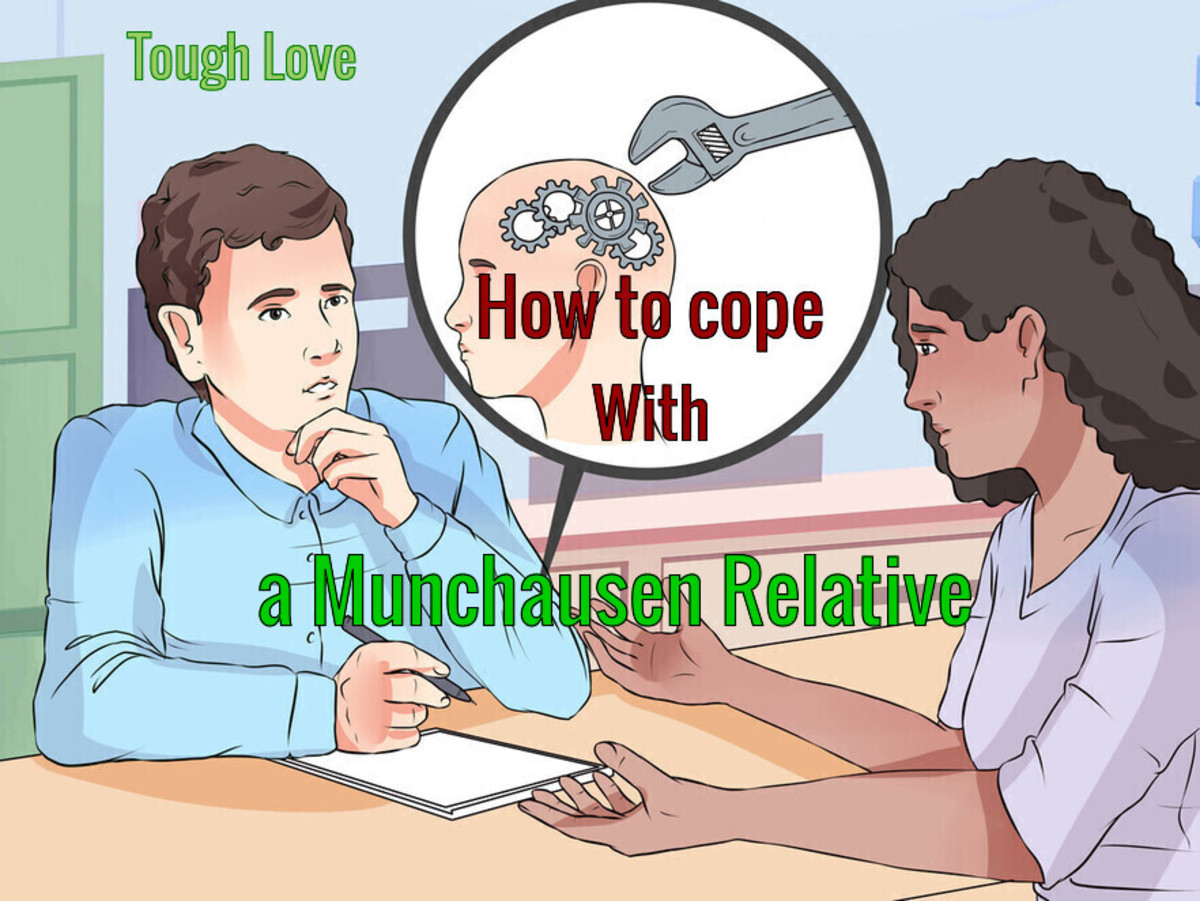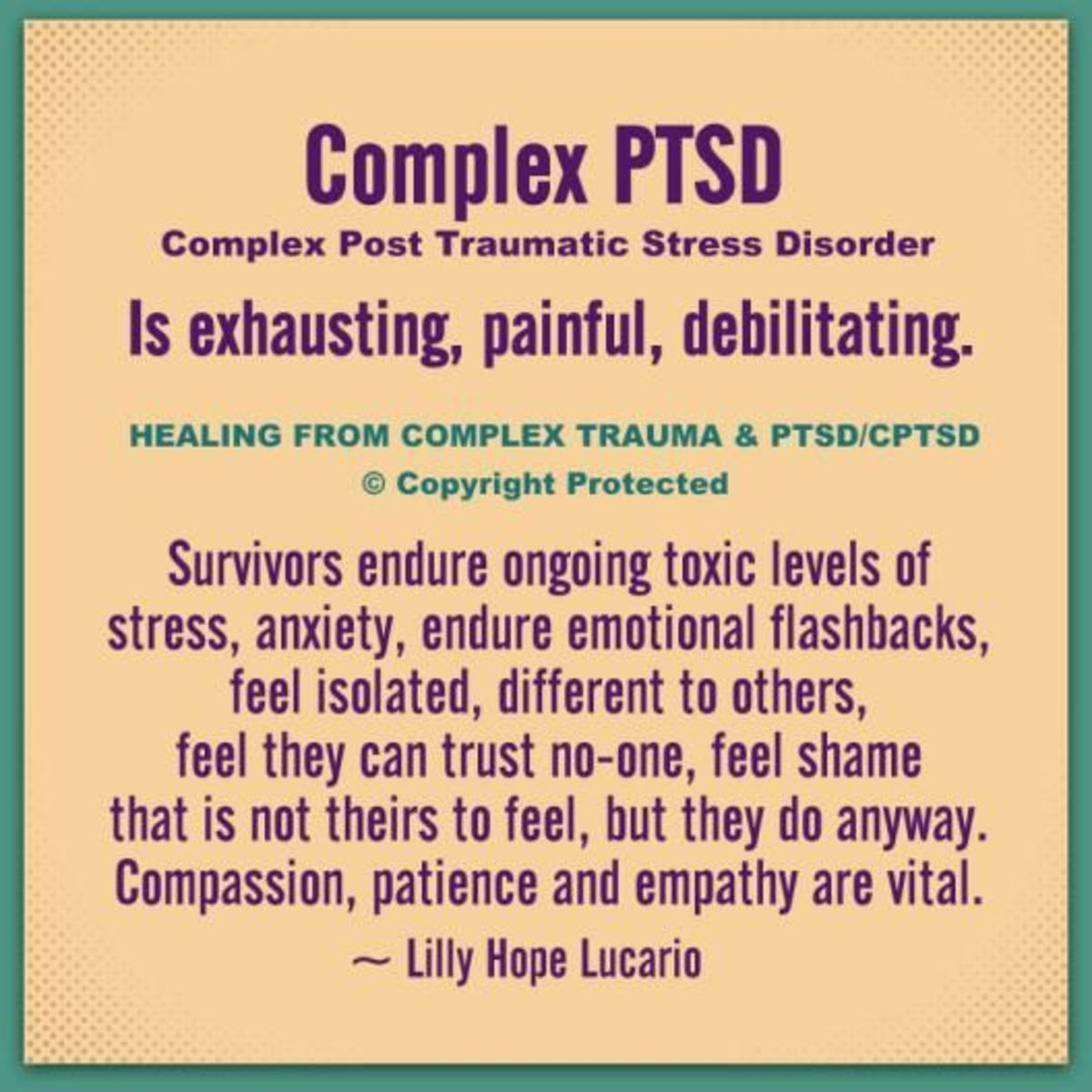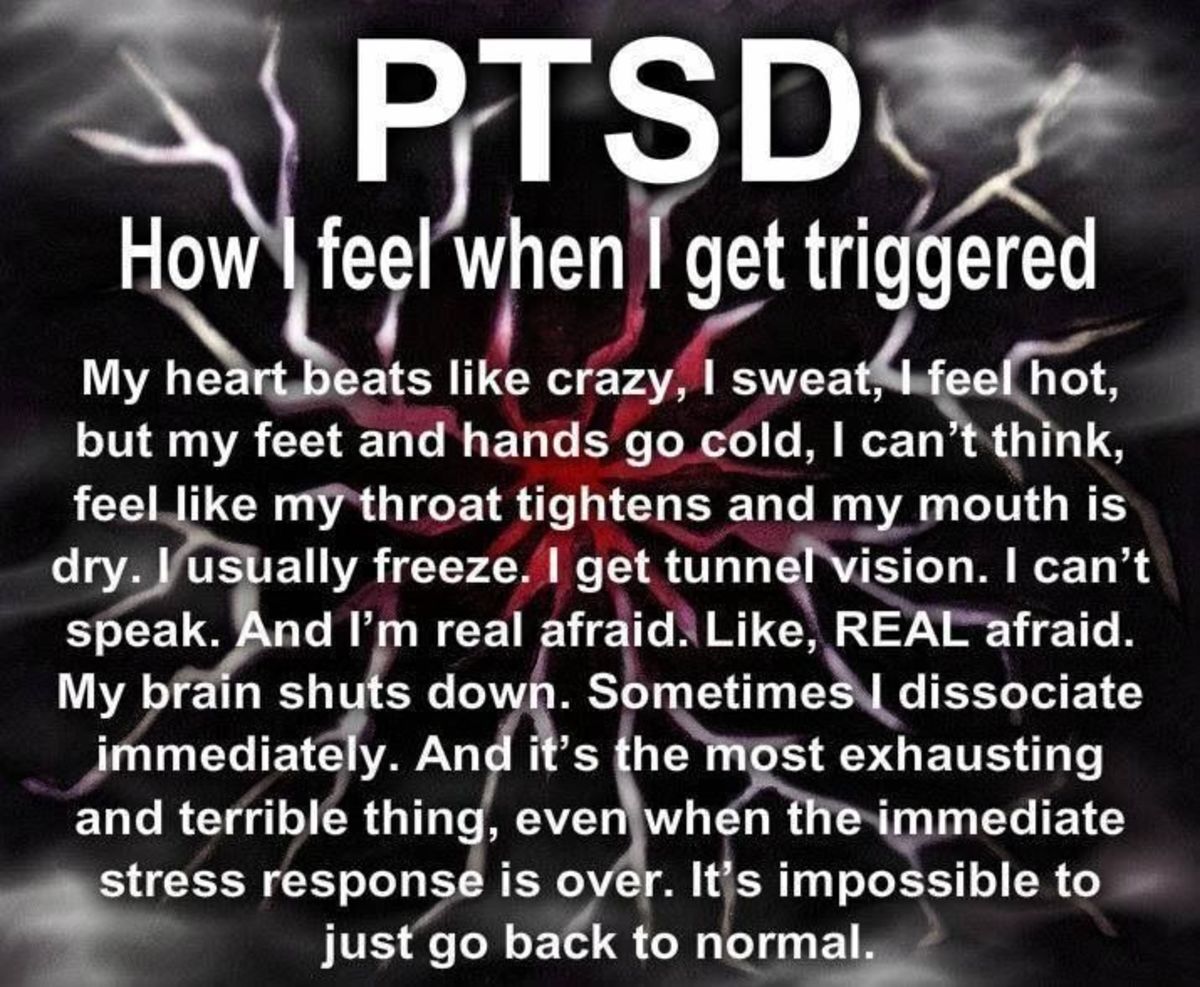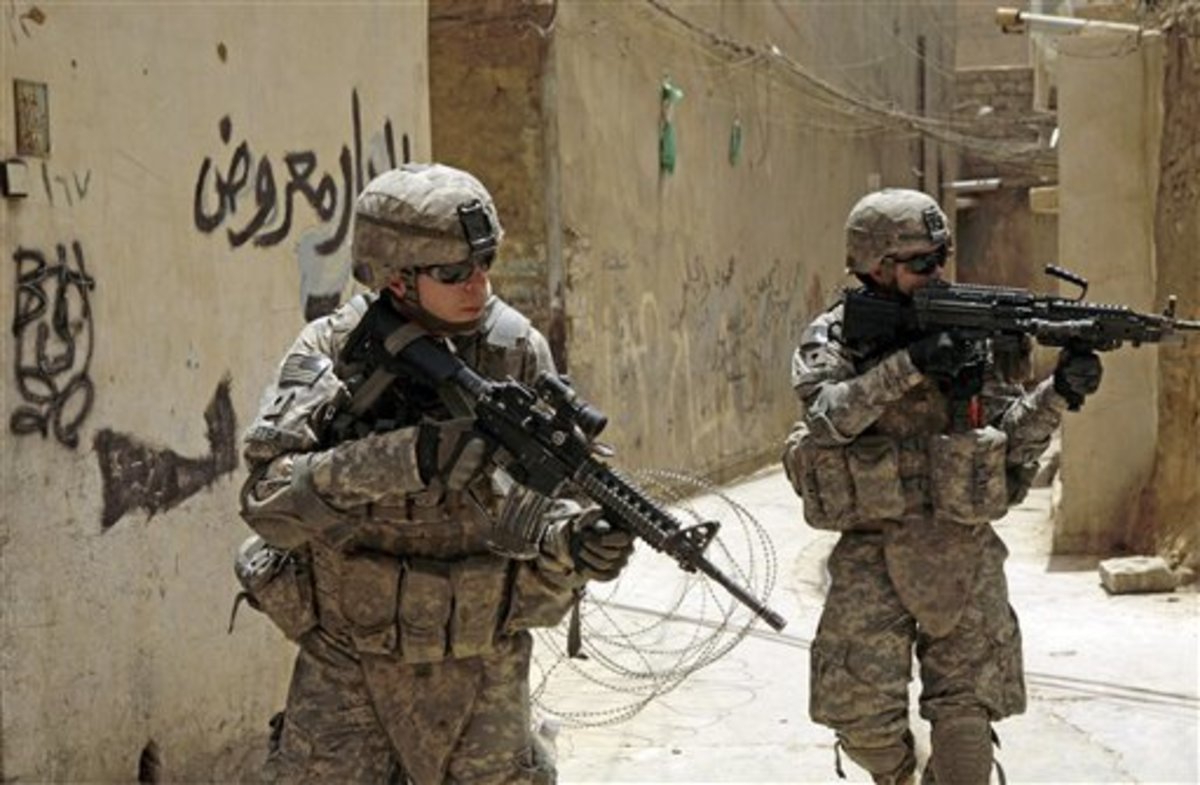- HubPages»
- Health»
- Mental Health»
- Anxiety Disorders
PTSD: The Hidden Killer of First Responders
Sept 20th, 2018: This morning as I took a minute to look at Facebook between getting kids ready for school, my screen was filled with posts about a LODD (line of duty death) of a Florida firefighter. While I did not know this man, it was clear to see that he was loved by many and had a reputation of being a great man. But it was also very clear to see that this firefighter was also suffering from PTSD, and his death was more than likely a suicide. After a quick search, I was able to see that this man was loved by so many and had been one of the first people to help others in their time of need. But in the end, he felt the only escape was to commit suicide to be able to get away from the demons that haunted his dreams.
While I did not know this firefighter or his story outside of Facebook posts saying how much he will be missed, and people wishing he had spoken to them about the thoughts that were going threw his head. He is like so many other first responders across the country, who suffer in silence and think they are alone while dealing with the traumas of their chosen profession. He is like me, who also suffered alone for so long.
First responders are vulnerable to PTSD due to the amount of consistent first-hand exposure to extremely stressful and traumatic experiences that they encounter commonly during their careers. With a first responders’ main job being to go into places that not only put their life at risk, but they are also dealing with the severely sick and injured on top of that. So where did We, and by we, I mean EMS, Fire and Law Enforcement, we created the stigma that reaching out for help is a bad thing. That is where we went wrong and its something that we need to change and make it acceptable to reach out for help.
My PTSD Story
I have been a first responder for of 15 years now, and I have recently been diagnosed with PTSD and depression. These diagnoses came about after I started having anxiety attacks and finally went to seek help from a mental health professional. During this time, I was also in the middle of a divorce, fighting to see my kids and dealing with my mother being in and out of the hospital. My plate was full at the time. But underneath all the stress there was something else that I saw that something else was starting to surface. It started as a few bad dreams, then nightmares, and finally grew into the anxiety attacks. It was that day as I sat in my truck in a Walmart parking lot crying unconsolably, that I was not alright and needed help.
What got me to this point, you might be asking yourself. Well I have four calls that I have run that are the main ones that have been the focus of my nightmares. The first one I am going to talk about is one that I knew I had issues with for years, and once I tell you about it you will understand why. This was about 6 years ago, and my daughter was just born premature. She had just come home from the NICU and was doing great. But on this day, we got toned out for a “possible child birth” which is something very common in the part of town I worked in. We arrive on scene and find an lady, who was 29 weeks pregnant sitting very calmly in the living room. We speak with her and go about doing our job and preforming our exam. Everything looks fine, and looked like the odd of us having to deal with a delivery were extremely slim. We load the patient in the truck and head of for the hospital. During transport, I kept speaking with the patient and asking questions to try and figure out if she was having contractions, because I could not feel any. Again things were looking good, no delivery today, boy was I wrong. Not four minutes later I notice my patients heart rate jump from 70 to 120, and I start to stand up. While standing my patient start yelling “Sir, Sir, Sir”, as I stand up fully I see that she has her pants pulled down and there is a head with the umbilical cord around its neck. I procced to yell all kinds of things at my partner who somehow figured out that he needed to stop, call for more help, and come back to the back of the truck. But right then, is when I felt a fear that I have felt only once before in my life. A fear that I felt a few months before on the night my daughter was born at just under 3 pounds. The difference that day was the fact that I was the one who had to save this baby, and I was scared shitless. But we pulled it off and we made it to the hospital with a pulse and a breathing 3 pound little girl. I rushed the child inside and was met by a team of nurses and Doctors that took over and did that they do best. Sounds like a great ending right, well it was not. Remember what I said in the beginning, that the stigma of asking for help that floats around first responders, I got caught in that stigma and never asked for help. We cleaned up the truck, finished the report, had a cup of coffee and went right back to work. All the while I was not doing good, that fear I felt I could not shake for the rest of the shift. I came home in the morning hugged my daughter as close as I could and went about my day. All the while not talking to anyone about what I was feeling. As the months went on, I began to realize whenever I got a call for anything pregnancy related, my heart rate would sky rocket, my hands would become clammy, and those fears would come rushing back. To this day this still happens when those tone go off for any type of OB call. This was the first time I realized that there was a crack in the front that I have been putting up for so many years.
While that call above was the first time I knew I had some issues, it is not the one of the ones I am dealing with today. There are three other calls that haunt me the most, two involve kids and one was just a horrific car fire with two fatalities. These are types of calls that people think of when it comes to PTSD in first responders. These calls have all happened in stages of my career, and different stages of life.
I had just turned 20 years old and had been on the job for just over a month. I was a naive EMT still thinking I knew it all and nothing could stop me. Hell, I was 20 years old and indestructible. We got toned out for a shooting, this was my first one, I felt nerves like I never felt before. While driving there I was running threw all the things I might need to do and planning with my partners since they knew that it was also my first shooting. Right before we arrived on scene our MDC ringed with an update, “GSW to the head” flashed across the bottom of the screen. My heart rate jacked up even higher now, my mind racing a million directions all at once. That all came to a screeching halt once I walked in that house. There she was, out patient’s daughter, who might have been 5 years old standing in the living room with a sheriff’s deputy. She looked at all of us and we rushed inside, and with the innocence of a child tells us “My Mom’s upstairs and she’s bleeding” and then she laughed. It has been that laugh that has caused so many nightmares over the last few months and been sitting in the back of my mind for almost 15 years. I would hear it everything I drove by the apartments where this happened at. Or when my kids would laugh a certain way, I would hear the little girls voice telling me about her mother. The rest of the call was a blur, filled with blood, cursing, and people working as hard as they could. I can not tell you any real details about the rest of the call, but you ask me to talk about that girl I can describe her to you in detail. I didn’t sleep for two days after that call, and came back next shift and it was all just brushed under the rug as if nothing happen. No one reached out to see if we were ok, we were expected to be ok and if we were not I learned quickly that you didn’t talk about it.
Fast forward to call number two, I am a paramedic now and have been for a few years. I have now been on the job for 7 years and was feeling confident in my skills as a provider. I was sent on a “signal 4”, which is a car accident in the codes we used at the time. We had no information going into the call and we were right about the corner from the accident. We arrived on scene less that two minutes later and that’s when I saw her. I never got her name, but she was a two-year-old little girl with brown hair and green eyes. Did I mention that it was curly brown hair? She was in the arms of a lady who was hysterical completely unresponsive, with no major signs of trauma. I grabbed the little girl from what I thought was mom at the time because of how she was acting and rushed to my ambulance to get to work. I yell at my partner to grab mom and let’s go because we are less that 3 minutes from the Trauma Center in my town. It turns out the lady who I thought was mom was not, it was the other lady on scene who was calmly talking on her cell phone when I arrived on scene. Just before we leave one of the fire fighters opens on he door to tell me that the car seat was sitting on the floor in the front of the car and it looked like it was never secured in the car. I felt my blood boil at this point because this was now something that was very preventable. I get her to the hospital and into the hands of the trauma team, who tried there hardest all day to save her life, but her injuries were just too much, and she died later that afternoon. As the day went on it started to become clear that there was something weird with the story mom was giving and law enforcement started to investigate. I was at the hospital for a few hours giving statements and finishing the report that I was sure would end up in court. Not once did I have a supervisor check on us. A few other crews asked how we were doing but again, I did what I always did, told them I was good and went on my way. Again, I did not sleep for a few days, and didn’t say anything. But this time a few days turned into a few weeks, and when I did get any sleep I would have nightmares about that little girl and her face so peaceful while she was dying in my arms. Over time it got a little better but when I see a two year who resembles her I fight back the urge to cry no matter where I might be. The images come rushing back, the anger, the fear, and the feeling of helplessness as there was nothing I could have done to keep her alive. She would have been turning 10 this year.
My final call that has been causing me issues, happened about a year ago now. I had been on the job for 14 years, A friend training officer, and an instructor of numerous classes. It was about 2-3 in the morning and my partner and I hear the call go out for a car accident and the car was on fire. We pick up the radio and tell them to put us on it. We fly down the empty road and arrive on scene within in minutes. Fire is stretching their lines and we hear what sounds like screams coming from the car. Fire has the car our within a few minutes, but its to late, they are both dead. We stood there looking at the remains of two people, and one of them was clearly trying to get out prior to the flames taking him. I remembered being told by a old timer when I was new, that the smell of burnt flesh was one of the worse smells that you can ever experience. While I had smelled it before, on this night it was truly the worst smell I have ever smelled in my life. Plus, the added visual of the bodies not 20 yards away, and not being able to cover them because they were still smoking from the fire. Made it all that much worse. We had been on scene for about 15-20 minutes now and you would see the group of us move around running away from the smell that was assaulting out senses. Then the news showed up, and in all my years have never seen such disrespect for someone who was not deceased. The camera man set his camera on the burnt out remains of the car and the bodies inside, and just filmed away. We did what we could to block the view with trucks and over vehicles, but it did not matter. He just put the camera up in the air and went over the top of us. I was livid, and all the time still being assaulted by the smells and images of the scene we were one. Now over the last few years my agency had gotten better at recognizing the calls that can cause responders issues and started working with other agencies in forming a country wide CISD team. CISD, stands for critical incident stress debriefing, and this was going to be my first one that I was going to be attending. We did out debrief on scene, which was not normal, and might have been a hinderance to the process, because we will could see the bodies and that damn smell just kept coming at us. We would stop the whole thing and would move the group one way of another to try and escape the smell, but nothing worked it just never went away. That night I saw a lot of tough men and women cry, people I have known for years and been in some bad situations with show a side I have never seen. But not me, I did what I have done for the last 14 years and stuffed it down and locked it away. Until that day in the Walmart parking lot where I thought I was losing my mind and was totally out of control of myself. That day that I realized that I needed help and had not a long, long time.
PTSD: The Numbers
In the US, while there has no been a study done on a national scale but there have been numerous smaller studies by various groups. One study done by stated that the rates of PTSD in first responders ranged from 6.5% up to 35%, these are people diagnosed with PTSD. In another study done by the university of Phoenix stated that 85% of the responders they surveyed showed signs of mental health issues but never were formally diagnosed by a mental health professional. In the same study they stated that 1/3 of the people surveyed were formally diagnosed with either depression or PTSD. One of the issues in getting accurate date is the stigma that comes along with talking about mental health issue, and this is sited in every study that I read.
Another side of the mental health issues is the rates of suicide that come along with this issue. In an article that was in the USA Today in April of 2018, it stated that the rates of suicide was higher than the rate of deaths in the line of duty for 2017. In 2017, 103 firefighters and 140 police officers committed suicide. The numbers for Line of duty deaths was 93 firefighters and 129 police officers, who dies while working in any capacity for their department. There was no information available for stand alone EMT’s and Paramedics. However just like the issues of PTSD and depression in responders, the numbers for suicides are under reported and the article stated that the actual number could be at least double of what has been reported. This comes back to the stigma that is surrounding this topic.
The Stigma of PTSD in First Responders
From day one on the job, it was made clear to me that I had to be tough if I wanted to make it until retirement. This was made worse by the comments I heard about people who were suffering and let people know, they were called weak, made fun of, and in one case someone was fired after they attempted suicide. As a young and impressionable 20-year-old, this painted a picture to the me that I needed to deal with things in a way that would end up being very unhealthy. I took those feelings I was having and stuffed them inside and did not talk about things, which is something that a lot of people do.
Speaking out your feelings was not something that people would encourage when I was starting out and as an agency they did little to keep an eye on myself and my coworkers for judging out mental health state. This was made worse by the fear of losing your job or being passed over for a promotion because they were perceived as weak and not able to handle the stress. Another concern was the view from the public, the people that they are there to protect. They have the feeling that if the public found out about their mental health issues that they would not be able control a situation when the time is needed.
This is the same stigma that kept me from seeking help years ago, because I was afraid of what people would think of me if it got out. I have the reputation of being a strong medic, who it tough and someone you want with you in a bad situation. What would happen is people found out about my struggles with depression and PTSD? That is the same thought that so many other responders have when they are facing these issues, and this is something that needs to stop.
In the last few months I have spoken openly to numerous people about what I have been dealing with and the fact that I have been seeking treatment. It is amazing how many people that I work with have said to me, they have or were dealing with the same things and never said anything. I spoke earlier about the CISD program, and the fact that I have only been to one of them in my career. This is something that needs to change, these need to become a regular occurrence along with promoting the idea of asking for help when you need it and not just keeping it to yourself when you need help the most. There also needs to be programs to promote the use of mental health professionals by first responders that are agency based not something that is referred to an outside agency like happened to me and our EAP provider.
If you are a first responder or anyone who is reading this, and are dealing with PTSD, depression, or any other mental health issues. I urge you to reach out to someone, pick up a phone and call a friend, stop by a station and ask for help. Remember that you are not alone and that with treatment there is a light at the end of this very dark tunnel.
Resources
The Code Green Campaign: has a list of 9 helplines and most are based in either first responder of military trained professionals
First Responder Support Network: Provides training and support, to promote the recovery from stress and critical incidents experienced by first responders and their families
Iaffrecoverycenter.com : Program started by the IAFF for member which provides treatment





